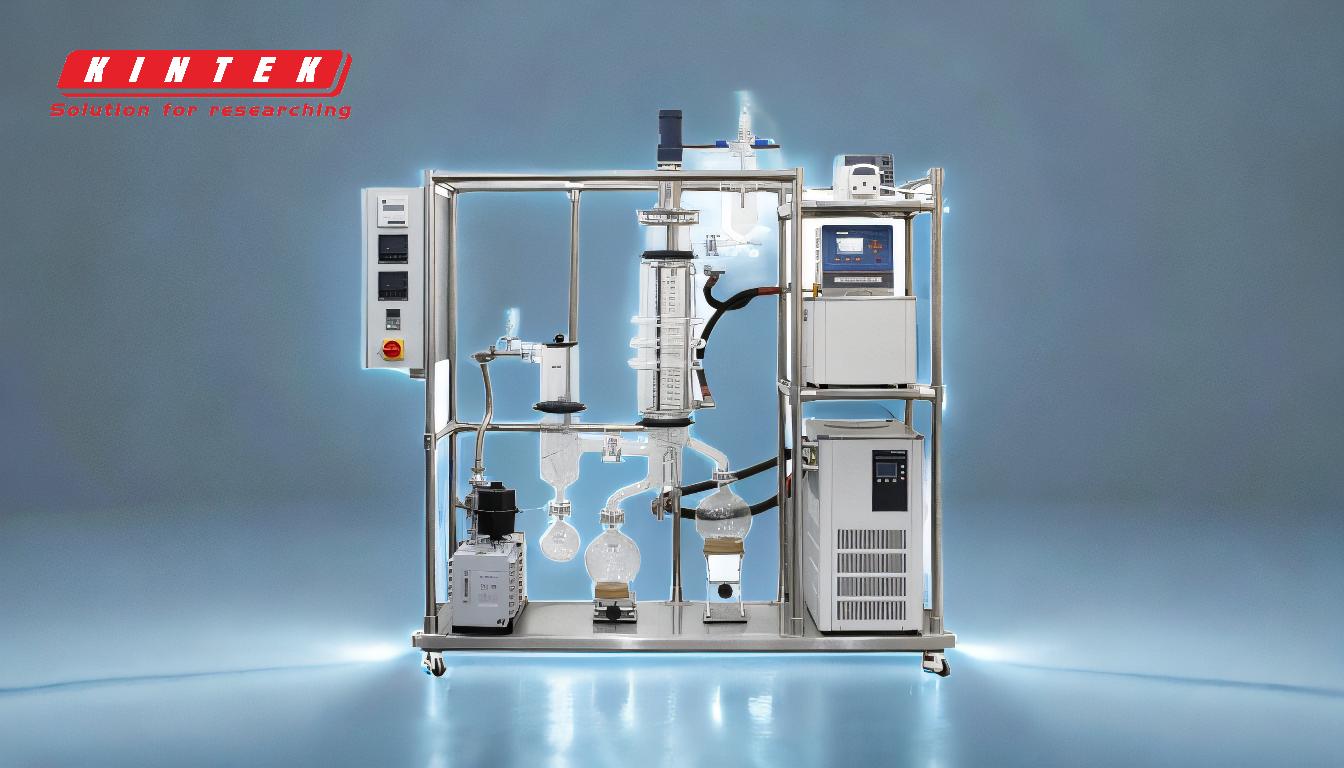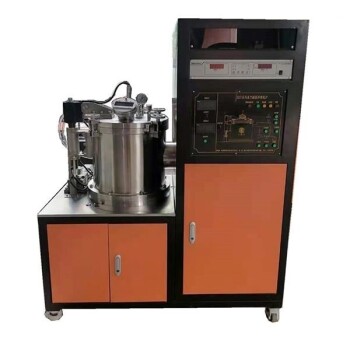Yes, vacuum increases evaporation. By reducing the pressure in the system, vacuum lowers the boiling point of liquids, allowing them to evaporate at lower temperatures. This is particularly useful for heat-sensitive substances and high-boiling solvents like DMSO. Vacuum also enhances the efficiency of evaporation by minimizing collisions between evaporated particles and background gas, improving the quality of deposition or separation processes. Additionally, vacuum allows precise control over evaporation rates without raising the temperature, ensuring controlled and even evaporation. Factors like vacuum level, heating bath temperature, and rotation speed work together to optimize the evaporation process.
Key Points Explained:

-
Lowering Boiling Points with Vacuum:
- Vacuum reduces the pressure in the system, which lowers the boiling point of liquids. This means that substances can evaporate at lower temperatures, which is especially beneficial for thermolabile (heat-sensitive) materials.
- For example, high-boiling solvents like DMSO can be evaporated more efficiently under vacuum conditions without requiring excessive heat that could degrade the material.
-
Enhanced Evaporation Efficiency:
- In a high vacuum, evaporated particles can travel directly to the deposition target without colliding with background gas. This minimizes contamination and improves the quality of the deposition or separation process.
- This principle is particularly important in applications like thin-film deposition or wastewater treatment, where purity and efficiency are critical.
-
Precise Control Over Evaporation Rates:
- Vacuum allows for precise control of pressure, which directly influences the evaporation rate. By adjusting the vacuum level, users can achieve the desired evaporation rate without needing to increase the temperature of the heating bath.
- This control ensures even and controlled evaporation, which is crucial for effective solvent-product separation.
-
Factors Influencing Evaporation in a Vacuum System:
- Vacuum Level: The pressure inside the system is a primary factor. Lower pressure (higher vacuum) increases the evaporation rate.
- Heating Bath Temperature: While vacuum reduces the need for high temperatures, the heating bath still plays a role in providing the necessary energy for evaporation.
- Rotation Speed: In systems like rotary evaporators, rotation speed affects the surface area of the liquid exposed to the vacuum, influencing the evaporation rate.
- Condenser Temperature: A well-maintained condenser ensures efficient condensation of vapors, maintaining the vacuum and preventing backflow of evaporated substances.
-
Applications of Vacuum Evaporation:
- Wastewater Treatment: Vacuum evaporation separates water from contaminants with high boiling points, making it an effective method for purifying water.
- Laboratory Evaporation: In labs, vacuum evaporation is used to concentrate solutions or remove solvents, especially when working with heat-sensitive compounds.
-
Advantages Over Non-Vacuum Methods:
- Vacuum evaporation allows for lower operating temperatures, reducing the risk of degrading sensitive materials.
- It provides faster evaporation rates compared to atmospheric pressure methods, especially for high-boiling solvents.
- The process is more controlled and efficient, leading to better separation and higher-quality results.
-
Considerations for Equipment:
- The vacuum pump is a critical component often overlooked. It must be capable of maintaining the required vacuum level for the specific application.
- Vessel size, while fixed in some systems like rotary evaporators, should be chosen based on the volume of material to be processed.
By understanding these key points, equipment and consumable purchasers can make informed decisions about vacuum systems and their components, ensuring optimal performance for their specific applications.
Summary Table:
| Key Aspect | Description |
|---|---|
| Lower Boiling Points | Vacuum reduces pressure, lowering boiling points for efficient evaporation. |
| Enhanced Efficiency | Minimizes particle collisions, improving deposition and separation quality. |
| Precise Control | Adjust vacuum levels to control evaporation rates without high temperatures. |
| Critical Factors | Vacuum level, heating bath temperature, rotation speed, and condenser setup. |
| Applications | Wastewater treatment, lab evaporation, and thin-film deposition. |
| Advantages | Lower temperatures, faster evaporation, and higher-quality results. |
| Equipment Considerations | Choose the right vacuum pump and vessel size for optimal performance. |
Ready to optimize your evaporation process? Contact us today to find the perfect vacuum solution for your needs!














